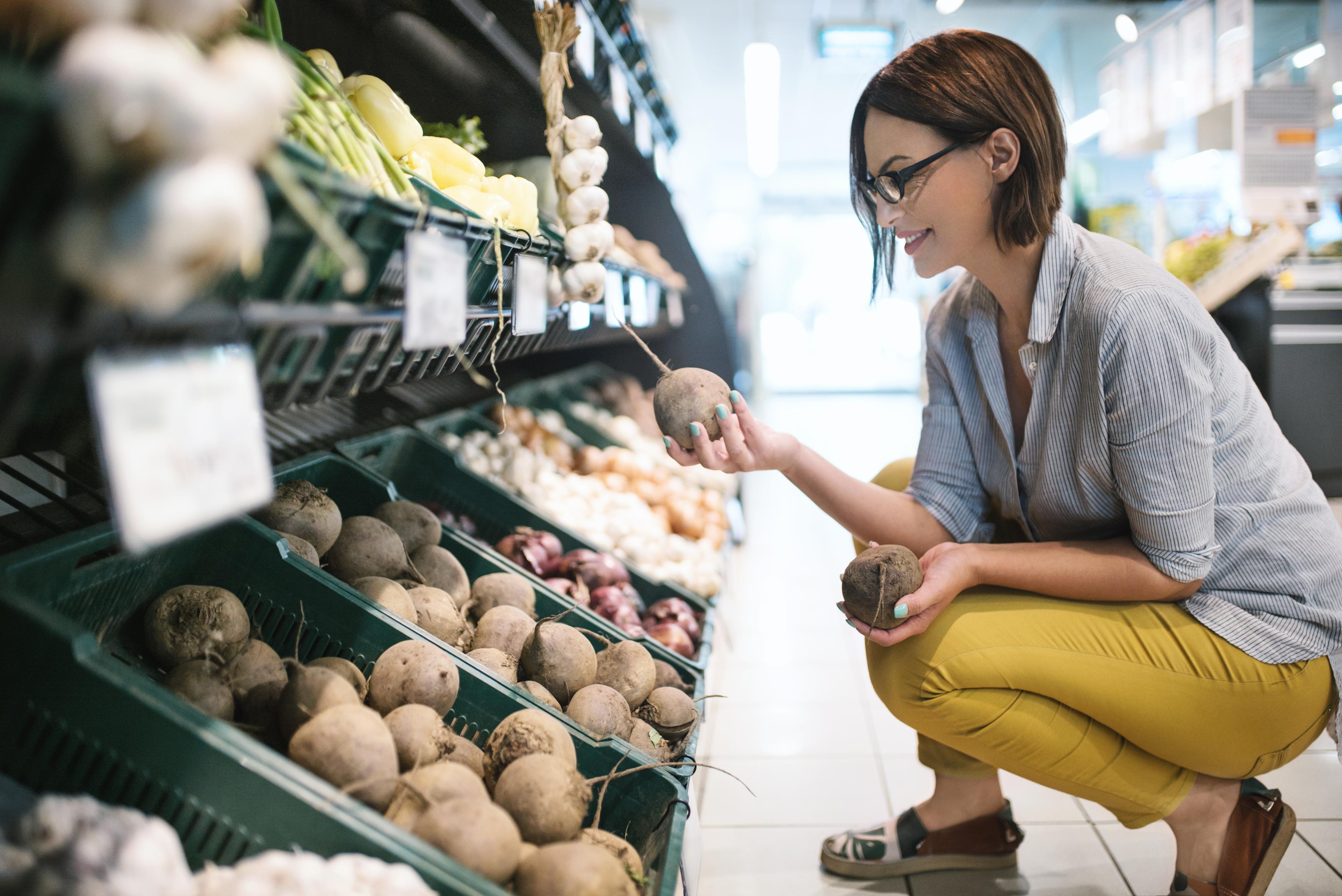
Maybe this has happened to you before: You’re in the produce area of your grocery store looking for your favorite kinds of berries or some fresh lettuces. The store offers both organic and non-organic choices. Your hand hovers between the two as you debate which one is better for you - and which one you should buy. Sound familiar?
As more people identify as health-conscious shoppers, the conversation around buying organic continues to grow. Here are some things to keep in mind as you make your food-buying decisions:
Organic vs non-organic food
What’s the difference? According to the Environmental Protection Agency, organic applies to fruits, vegetables, meats and other food products that have been grown or produced using no synthetic pesticides or fertilizers. Staying away from added chemicals seems to be a main reason that consumers choose organic items. But they also like that organic farmers or organic livestock operations are known for using more environmentally-friendly practices. A couple things to note:
- Organic foods tend to cost more than non-organic products because there is typically more labor involved in the production.
- Some research has suggested that organically-grown foods have more nutrients. And in some products, organic farming can have added health benefits, like beef cattle raised on organic grasses that are high in heart-healthy omega 3s. Those benefits are passed on to people who eat the beef. While there’s been no definitive research that there are huge health benefits attached to this, it’s still something to think about.
Improved animal welfare
A lot of shoppers who choose organic foods do so not only because they think it’s a better option for their bodies and the Earth, but because they believe in good animal welfare practices, said Shanthi Appelö, a registered dietitian for Blue Cross Blue Shield of Michigan.
“One of the reasons I like to choose organic produced meats and things like that is because if it has that stamp of approval that it’s been certified organic for animals, it means that they have healthy living conditions and access to the outdoors. It means that they’re fed organic food, they are pasture feeding for at least 30% of the grazing season, and they have vaccinations. So, a lot of things to protect the animal.”
How to approach organic and conventional foods
If you’re leaning toward buying more organic foods but don’t know the best way to get started, Appelö has some tips:
Only buy organic food if it’s affordable for you.
With organic foods being typically more expensive - and inflation hitting most people’s weekly grocery budget - it’s more important to buy healthy foods like non-organic fruits and vegetables than it is to specialize in just organic.
Focus organic dollars on the Dirty Dozen. If your budget allows, buy organic - especially on the Dirty Dozen foods that are more likely to pass their pesticides onto people. Some of these include:
- Strawberries
- Spinach
- Grapes
- Apples
- Peaches
- Tomatoes
- Celery
- Pears
Buy organic eggs and meat.
“If you do have the money to spend, I think it’s very important to look at the quality of animal lives in the way that they’re treated with organic practices and the way that it’s treating our earth,” Appelö said. “And so, organic farming is kind of this proactive approach to the environment where we’re not fixing a problem, we’re working towards a way that is going to be sustainable over time.”
To learn more about organic foods, listen to this episode of A Healthier Michigan Podcast. A Healthier Michigan Podcast is brought to you by Blue Cross Blue Shield of Michigan. To hear more episodes on your smartphone or tablet, subscribe on Apple Podcast or Spotify or your favorite podcast app.
Photo credit: Getty Images






